This was a collaborative piece by Scott Blair and Barak Goldman
The Stanley Cup’s history dates back to 1892 when Lord Stanley of Preston, who was Governor-General of Canada at the time, donated a trophy called the Dominion Challenge Cup to be awarded to Canada’s top amateur hockey team. The tradition started then that the winning team could bring the Cup “home” for a certain time. At first, the winning team physically kept the Cup until they were beaten by another team in their league or challenged by a team from a different league and lost.
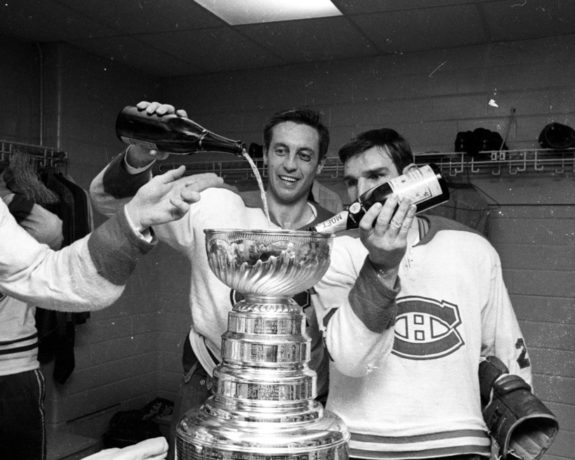
In 1906, professional teams were allowed to compete for “The Challenge Cup.” Starting in 1915, the champion from the PCHA and NHA, Pacific Coast Hockey Association and National Hockey Association, respectively, competed for the honor to hoist and keep the Stanley Cup. Finally, in 1926 after some folds and mergers, the NHL champion would become the Stanley Cup holder and get their day with the sports world’s most famous and recognizable trophy.
Related: 10 Greatest LA Kings of All-Time
The New York Rangers and Los Angeles Kings are polar opposites when it comes to NHL history. The Rangers are an Original Six franchise dating back to 1926 while the Kings were part of the 1967 expansion. However, the 2014 Stanley Cup Final brought two cities and teams together that were both at the top of their game. These teams, from two of the biggest cities in the world, have a long history. Whether it’s the blockbuster trades they’ve made over the years, the East Coast/West Coast dynamic in both hip-hop and elsewhere, or the Brooklyn Dodgers leaving New York for LA, these cities have formed a love/hate relationship and finally battled each other for the right to take home the Stanley Cup.
They Took the Long Road
It took 45 years for the Kings to win their first Stanley Cup in 2012. A mere two years later, they upended the Rangers in a five-game series to earn the right to drink from the Cup for the second time. The Rangers waited 54 years between Stanley Cup championships when Mark Messier brought the hardware back to Broadway in 1994, and it took 20 more years to return to the Final.
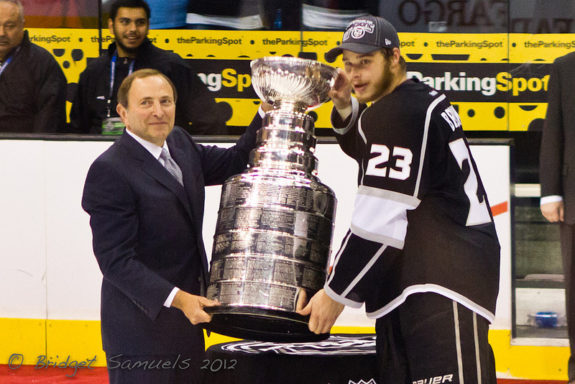
The Kings recorded a solid 100 points in the 2013-14 season, however, they finished third in the Pacific Division and weren’t considered a favorite to win the Cup. Destiny was on their side after they won three playoff series that went to the brink. The 2013-14 Kings are the only team in NHL history to win three seven-game series to advance to the Final.
Riding on the back of goalie Jonathan Quick, the Kings came back to beat the San Jose Sharks in the first round after being down 0-3 in the series. In the second round, the Kings took Games 1 and 2, but the Anaheim Ducks claimed victory in Games 3, 4 and 5. However, the Kings fought back to win the next two games and take the series. Then came the matchup against the mighty Chicago Blackhawks. That series lasted another seven games, and the Kings ousted the defending Stanley Cup champs for another shot at the Cup.
The 2014 Eastern Conference Playoffs featured a couple of firsts. There were more lead changes in the opening round than ever, which speaks to parity in the league. The Rangers made history on May 29, 2014, when they became the first team to advance past the Conference Final after winning each of their first two rounds in seven games. However, the Kings did the same thing on June 1, 2014, but they did the Rangers one better, winning all three series in seven games on the way to the Stanley Cup Final.
To survive the East, the Rangers beat the Montreal Canadians in a six-game series that featured two overtime games and a series-clinching shutout win by Henrik Lundqvist, which was secured by a lock-down defensive effort by the entire Rangers squad. They allowed only 18 shots in the game. Before that, the Rangers were taken to the brink by the Philadelphia Flyers in round one and again by the Pittsburgh Penguins in round two. The road to the Final was hard-fought for both the Rangers and Kings, but they earned it.
The Coast to Coast Battle
Lundqvist and Quick were two of the best goalies in the league at the time. King Henrik went into the series with 42 career playoff victories, eight of them by shutout. Quick, on the other hand, had 41 career playoff wins and eight shutouts.
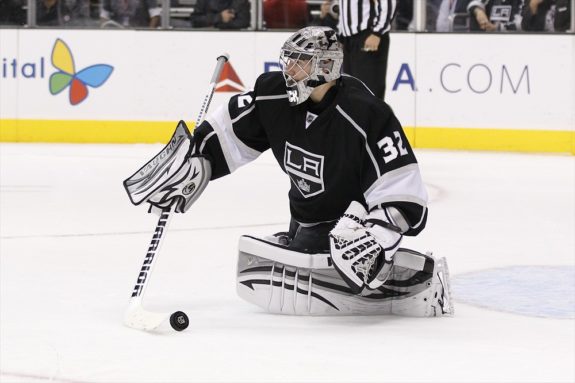
Jonathan Quick (Ric Tapia/Icon SMI) 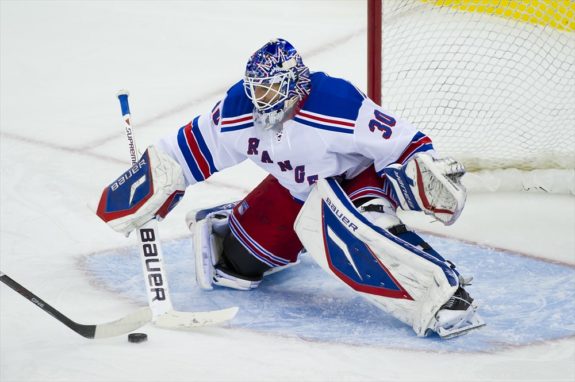
Henrik Lundqvist (Rich Kane/Icon SMI)
After the first three rounds, Lundqvist had a better goals-against average than Quick while the Kings had the top-four point-getters and five of the top six. These two teams from legendary cities played 41 games collectively in six weeks before the start of series; it was a wonder either of them had anything left in the tank. However, the series was a hard-fought battle and closer than the four games to one stat line would show.
The first two games were decided in overtime, the Kings won the opener 3-2 on a goal by Justin Williams. Game 2 went to double overtime and this time Dustin Brown popped the winner. Quick came through with a 3-0 shutout in the always pivotal game three to give the Kings a commanding 3-0 series lead.
Game 4 saw all three goals scored in the first 10 minutes. Playing with desperation, the Rangers jumped out front early on goals by Benoit Pouliot and Martin St. Louis, but the Kings cut the lead in half shortly thereafter on a goal by Dustin Brown. The rest of the game was a clampdown effort by both teams scattered with scoring chances. The Rangers hung on and the faithful at Madison Square Garden had a sense of hope.
However, back in LA, the Kings prevailed in Game 5 when Alec Martinez scored the game-winner. Martinez, who scored the Game 7 overtime winner against the Blackhawks, beat Lundqvist at 14:43 of the second overtime and the Staples Center went nuts. Lundqvist made 48 saves on 51 shots but it didn’t matter. The Kings were on a mission and wouldn’t be stopped. And just like the players 122 years before, the Kings took home the Cup.
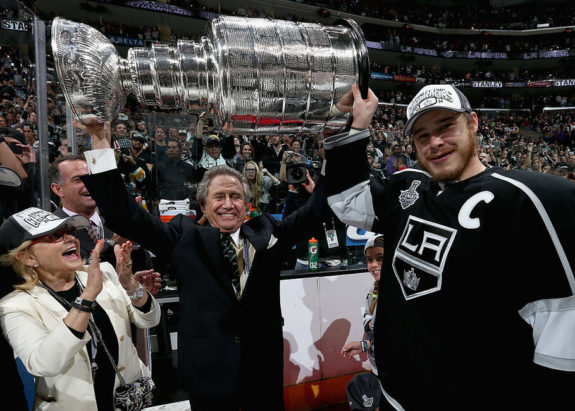
The following season, the Rangers won the Presidents’ Trophy and went all the way to the Eastern Conference Final before losing in a Game 7 thriller to the Tampa Bay Lightning. The Kings, on the other hand, didn’t even make the playoffs. In their case, it was probably sheer exhaustion as no team had played more games in the past three seasons including playoff runs.
*For more on the Kings’ post-2014 downturn, watch for Barak Goldman’s upcoming piece.